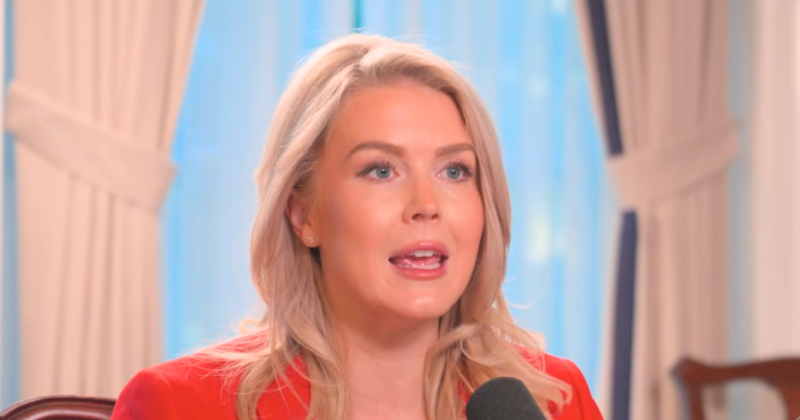White House press secretary Karoline Leavitt defended new restrictions limiting journalist access to staff office space near the Oval Office.
The policy changes came after officials allegedly discovered reporters recording and listening to sensitive internal conversations, Resist the Mainstream previously reported.
The restrictions took effect Oct. 31.
Under the new rules, the White House and National Security Council now require reporters to schedule visits before entering Room 140, known as Upper Press.
Previously, credentialed correspondents could enter the area without advance notice. They used this access to obtain comments from senior officials on short notice.
Leavitt explained the reasoning behind the policy shift during an appearance on the New York Post’s “Pod Force One” podcast with Miranda Devine.
She stated that inappropriate journalist behavior prompted the administration to implement stricter controls.
“We felt it became very inappropriate for reporters to be loitering around sensitive information in our offices,” Leavitt said during the interview.
She described specific instances that led to the decision.
“And we did unfortunately catch some unruly reporters recording us without our permission, listening in on conversations, eavesdropping,” Leavitt stated.
She provided additional details about the alleged misconduct.
The press secretary described how reporters allegedly monitored staff routines.
“We’d have staff meetings in the morning. Some of the reporters started to pick up on that. And we’d walk out, and they would be out there trying to listen,” she said.
Leavitt also mentioned encounters involving high-level officials.
“If Secretary Rubio or the chief [of staff] want to come in and brief us on something, you’d have reporters out there heckling them. It just became an inappropriate work environment,” she explained.
Despite public criticism of the new policy, Leavitt suggested that many journalists privately accept the changes.
She indicated a disconnect between public statements and private communications from reporters.
“A lot of the outrage you’re seeing on Twitter [X], they’ve told us privately they’re OK with how this system works so long as they can still have appointments with me to understand the news of the day,” Leavitt said.
She emphasized that access remains available through scheduled appointments. The press secretary stressed her commitment to working with journalists.
“And we grant them that access. I give them as much time as I possibly can on my schedule, although a lot of my time is with the president and in the Oval Office and sitting in on meetings,” she stated.
Leavitt described her role in facilitating press relations.
“So, I try to devote as much time as I can to the press because that is my job, right? That’s the basic duty is for me to work with the press and make sure they’re telling the truth out there,” she said.
WATCH:
The White Correspondents’ Association issued a sharp rebuke of the new restrictions. The organization represents journalists covering the White House and advocates for press access.
Association president Weijia Jiang of CBS News issued a statement opposing the changes.
“The White House Correspondents’ Association unequivocally opposes any effort to limit journalists from areas within the communications operations of the White House that have long been open for newsgathering, including the press secretary’s office,” Jiang said.

